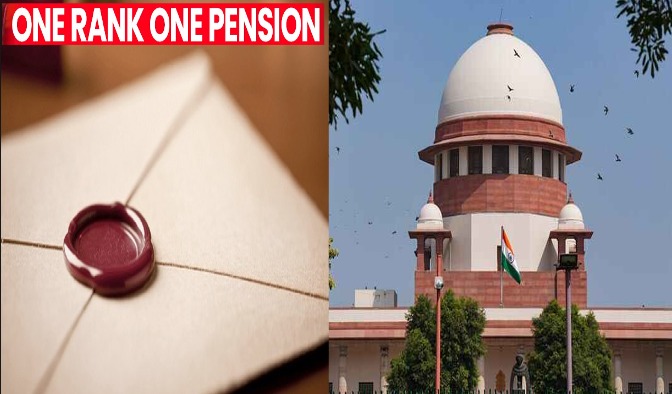
The Supreme Court stated on Monday that it intends to stop the practice of permitting litigants to make submissions in sealed covers.
Chief Justice of India (CJI) DY Chandrachud made the remark in a dispute involving the payment of arrears under the One Rank One Pension (OROP) scheme.
On Monday, the Attorney General of India, R Venkataramani, representing the Ministry of Defence, handed over a sealed cover to the Court containing the government’s roadmap on payment of arrears.
Nevertheless, the bench of Justices, which also included Justices PS Narasimha and JB Paridiwala, ordered the AG to share the same with the opposing party.
“Please share the sealed cover with the opposing side or take him to the chamber. We want to put a stop to the sealed cover business that the Supreme Court is doing because the High Courts are doing it as well,” the CJI said.
“I personally dislike sealed covers. In court, there must be transparency. If we follow sealed covers, High Courts will follow it, and it must stop,” the CJI remarked.
On the current case, the CJI stated that there is nothing secretive about it because it is about implementing the earlier orders of the Court.
“This is about carrying out the orders. What is the secret here? You must provide a copy to the opposing party. Sealed coverings are absolutely contrary to established judicial principles,” CJI made it quite clear.
The AG insisted, but the CJI declined.
“Sorry, but we will not accept this sealed cover. Please return it or read it, “CJI said.
The AG then proceeded to read the report’s contents.
The problems originate from a 16 March, 2022 verdict in which the Supreme Court upheld the OROP scheme launched by the Central Government through its November 7, 2015 notification.
However, the Court noted in that ruling that the government must perform a refixation exercise for a term of 5 years with regard to the pension payable to Army personnel as stipulated in the OROP policy in compliance with the November 7, 2015 notification. It had previously stated that the arrears should be paid within three months.
Following that, it was extended for another three months in September 2022, and again in January 2023, with the Court ordering that the payment be made by March 15.
However, the Centre then announced that the payment will be delivered quarterly in four payments. The impacted personnel subsequently moved the Supreme Court seeking how the government could unilaterally change the top court’s deadline.




